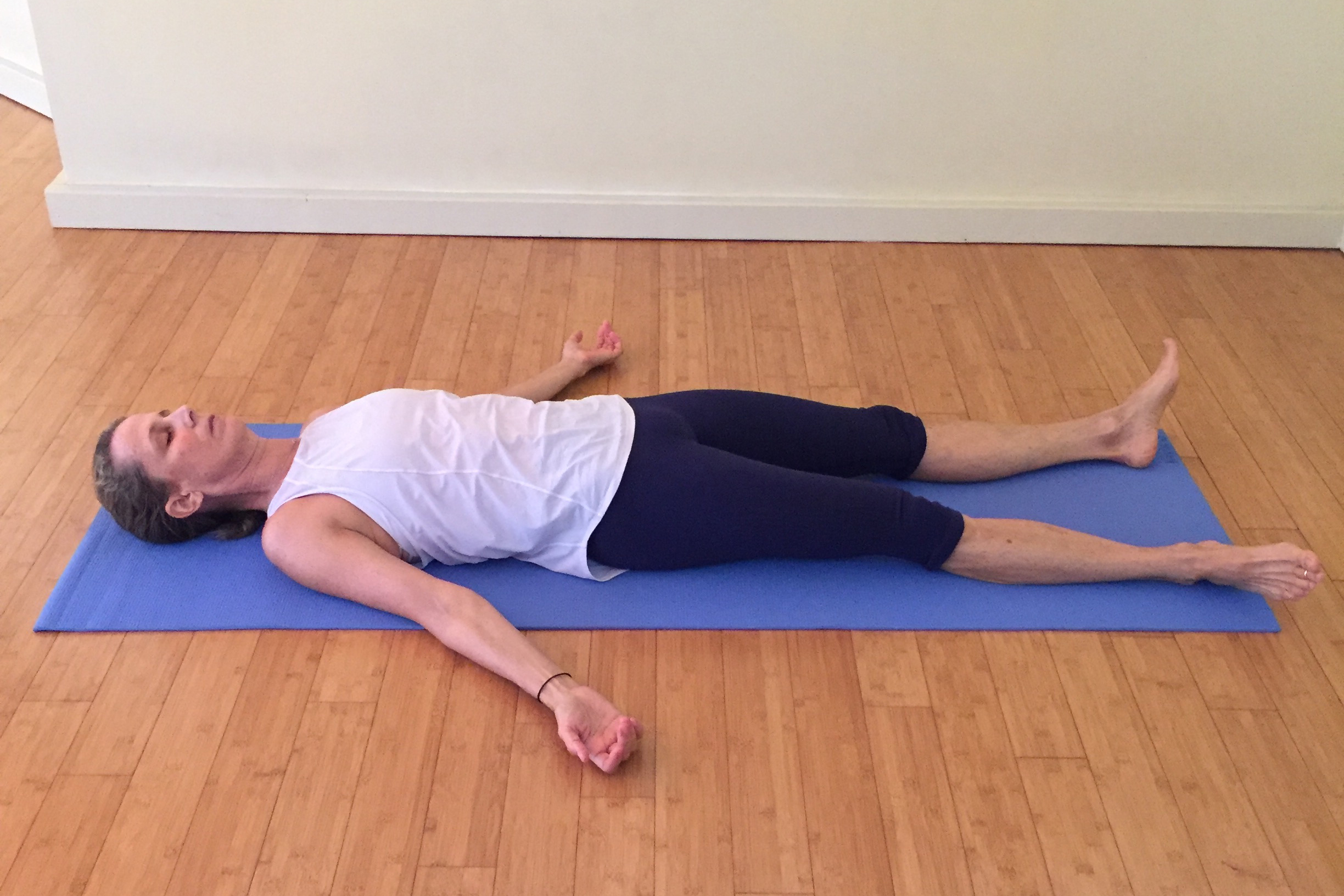At the end of every yoga class we come into Savasana or Final Relaxation Pose. But, did you know that the real translation of Savasana is Corpse Pose? The ancient yogis meant for us to contemplate our own death.
I heard this statistic on the radio this morning. Here in the US, as elsewhere in the world, we have 100% mortality rate.
Right?!
We know that, but we try not to think about it. We will all die someday, in the far future. Not today. Not tomorrow either. But who knows when they will die? This particular program was about being financially prepared for death by making a will. We need a will because we cannot take our stuff with us when we die. So what happens to our stuff? And how important is our stuff?
Imagine an angel comes down to tell you “Straighten up your affairs; you will not awake from your sleep tonight. You are coming with me.” How would that change your life? Would you worry about your stuff? Making a will can give you some peace of mind, at least in terms of taking care of your material possessions. But contemplating your own death can be trickier. Death can be a great teacher. This ties in beautifully with the yogic idea of contemplating death as a way to live your life more fully.
I was talking about death in class last week. Savasana, or what we call Final Relaxation, literally translates to corpse pose. The ancient yogis meant for us to contemplate our deaths, not to fall asleep after our asana class. If you think about it, on a sub-conscious level, maybe that helps explain why a lot of people skip Savasana. It’s too uncomfortable. Just like contemplating death is too uncomfortable. But, we must not be afraid to discuss death. Let’s not get uptight about it. Instead, let this knowledge help you live every moment of your life fully, because every moment matters.
A friend recently recommended a book about mid-life. The book is called: Life Reimagined, The Science, Art and Opportunity of Midlife - by Barbara Bradley Hagerty. In the book the author describes a conversation she had at lunch with her mother and another woman. She was recounting how her mother taught her integrity and her father taught her delayed gratification. She says, “Sometimes I wonder when it’s time to stop deferring and start gratifying.” Her mother looks at her and says, “It’s now, honey! This is the time to enjoy your life. Don’t waste another moment!” Barbara says something clicked inside her, and in that moment she realized how incredibly fortunate she was. She took stock of her life and counted her blessings, saying to herself, “Remember this moment, Barbara, life is very good.”
As a researcher, Barbara Bradley Hagerty found out that if you do this frequently, if you stop and take mental snapshots of meaningful moments in your life, it gives you the sensation that life is slowing down and it takes on more meaning.
From his book The Untethered Soul, author Michael Singer says this, “Learn to live as if you are facing death at all times and you’ll become bolder and more open. If you live fully, you won’t have any last wishes. You will have lived them every moment. Only then will you have fully experienced life and released the part of you that is afraid of living. There is no reason to be afraid of life. And the fear will fade once you understand that the only thing there is to get from life is the growth that comes from experiencing it. Life itself is your career, and your interaction with life is your most meaningful relationship. Everything else you are doing is just focusing on a tiny subset of life in the attempt to give life some meaning. What actually gives life meaning is the willingness to live it. It isn’t any particular event; it’s the willingness to experience life’s events.”
What would you do differently if you knew you would not wake up tomorrow morning?

